Ray Davies: See My Friends album review track-by-track
Former Kinks frontman's new collaborative album for 2010

Introduction
Although Davies is still capable of writing atmospheric and memorable songs, as recent solo albums Other People’s Lives and Working Man’s Cafe attest, his last two releases have found him revisiting the glories of the group with which he made his name.
Last year’s Kinks Choral Collection reworked a string of '60s hits to facilitate a choir from his neighbouring Crouch End in North London, and here it’s more famous chums adding their voices to some classic pop.
Of course, any project of this kind was always going to be a hit-and-miss affair, and some fans may even think a few of this selections amount to nothing less short of sacrilege. But it’s Ray’s party, and he’s on hand to ensure that the spirit of the originals isn’t completely tarnished, ultimately producing an album that will surprise and delight as many as it may confound.
The bulk of the tracks were recorded at Davies’ own Konk studios in North London, although to pin down a few names on his wish-list he set off to Oslo (Metallica), New Jersey (Bruce Springsteen), New York (Bon Jovi) and Chicago (Billy Corgan).
The end result is an all-star affectionate tribute, the very calibre of guest performers offering proof, if it were needed, of the enduring place The Kinks hold in the hearts of so many musicians.
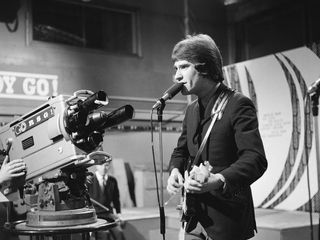
Better Things, featuring Bruce Springsteen
The original 1981 Kinks recording of this anthemic guitar track owed more than a passing debt to the music Springsteen himself was making at the time, so it seems only right that The Boss should weigh in here.
The two men trade vocal lines on what has to be one of Davies’ least complicated and most uplifting lyrics, underpinned by a 12-string jangle straight out of the Byrds tuition book.

Celluloid Heroes, featuring Jon Bon Jovi & Richie Sambora
The subdued strum of the 1972 favourite is given something of a power ballad makeover, with Richie’s wailing guitar and Jon’s theatrical rasp making the song sound uncannily like one of Bon Jovi’s own sky-punching slow-tempo rockers.
The opening verse piles on the bombast, but Davies manages to rein it in for the second verse, salvaging much of the intimacy of the original reading.
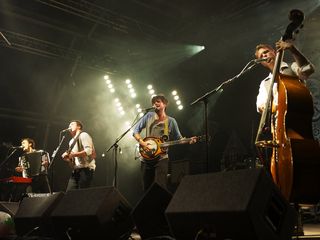
Days/This Time Tomorrow, featuring Mumford & Sons
One of The Kinks’ most covered songs is welded together with a track from their 1970 album Lola Versus The Powerman & The Money-Go-Round with a little help from the million-selling coffee table folkies.
Days appears in acappella form in the intro, shifting into a banjo-led canter for the second song, the vocal harmonies recalling the acoustic rock of McGuinness Flint.
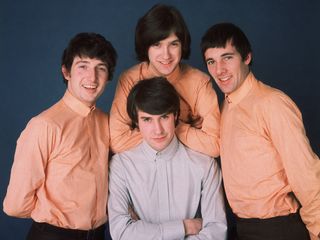
A Long Way From Home, featuring Lucinda Williams & The 88
Louisiana’s favourite country rock daughter brings her beautifully affecting southern drawl to another song first heard on the Lola... album.
Not for the last time on this record, Davies restricts himself to a supporting role, adding understated backing vocals while Williams’ takes the lead, with LA-based power poppers The 88 (who’ve previously toured with Davies as his back-up band) transporting a Muswell Hill ballad to the Mississippi delta, swamped in ringing acoustic guitars and echoing Hammond organ.
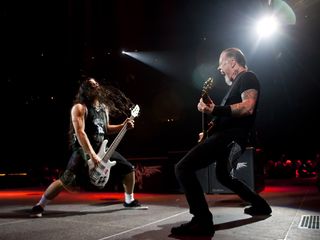
You Really Got Me, featuring Metallica
Long regarded as one of the original building blocks of heavy metal (remember Van Halen’s '70s cover?), Metallica are the perfect candidates to give The Kinks’ debut hit a souped-up thrash overhaul.
James Hetfield’s dextrous guitar solo may not be as memorable the Dave Davies original, but it plays an important part in helping the band stamp their own identity on the track, Davies seemingly happy just to shout along on the title line.

Lola, featuring Paloma Faith
The Kinks’ gender confusion classic takes on yet another dimension by having a female singer tackle the lead vocal.
Faith’s slightly mannered voice may be a little too dramatic for some ears, but it adds a bluesy sleaziness perfectly in keeping with the lyric of furtive assignations in Soho bars, while the band chug away on an equally seedy groove, barrelhouse piano fleshing out the atmosphere even further.
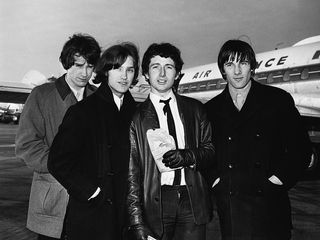
Waterloo Sunset, featuring Jackson Browne
A laid-back West Coast singer-songwriter may seem an odd choice to take on an evergreen love poem to London, but it emerges as one of the strongest and most elegant selections on the entire album.
Instrumentation is stripped back to just acoustic guitars, Davies contributing little more than multi-tracked backing harmonies to Browne’s achingly beautiful lead vocal.
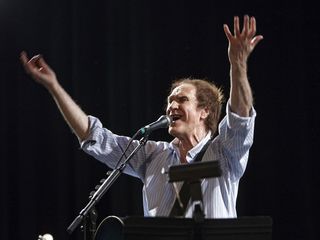
'Til The End Of The Day, featuring Alex Chilton & The 88
Thought to be Chilton’s last recording before his death in March of this year, this stomping version of The Kinks’ 1965 hit is awash with the ramshackle garage pop that made Big Star such a joy in their heyday.
As on a few other tracks, Davies flits around in the background, while Chilton’s sweet voice shouts about the joys of love, and The 88 are once again on hand to fill out the sound with great authenticity.
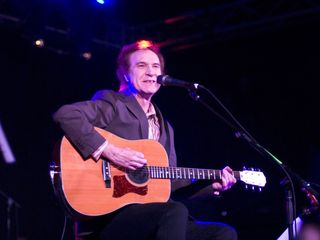
Dead End Street, featuring Amy McDonald
Scots chanteuse McDonald adds a pleasingly tough jazzy hue to Davies’ witty ode to poverty, while the arrangement explores the original version’s vaudevillian music hall roots in even greater depth.
A thumping piano and shuffling drums provide the backbone, while the blend of Ray’s and Amy’s voice pays huge dividends.
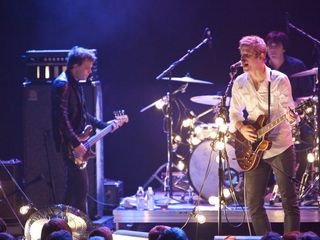
See My Friends, featuring Spoon
Austin-based indie rockers Spoon add even more trippy elements to what is probably The Kinks’ most psychedelic hit single, the layered jangle of the guitars and ethereal voices giving the track the feel of early REM.
Davies’ voice has developed a more quivering and fragile quality with age, which suits the sorrow and remorse of the lyric more than ever.
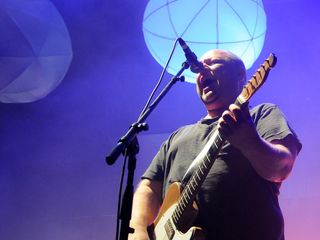
This Is Where I Belong, featuring Black Francis
One of the least well-known songs on the album (it first appeared on the France-only EP Mr Pleasant in 1967), this solidly-constructed country rocker features understated accordion and organ.
Davies and the Pixies frontman trade verses - the latter’s voice sounding extraordinarily similar to that of the instigator of the piece. The glossy 21st century production is perhaps the main difference evident when played next to the original.

David Watts, featuring The 88
Having provided exemplary backing for the Lucinda Williams and Alex Chilton tracks, The 88 step into the spotlight for a relatively by-the-book charge through Davies’ charming paean to schoolboy envy.
Vocalist Keith Slettedahl adds a convincing juvenile while to the lyric, while Adam Merrin’s jaunty piano helps convey a convincing atmosphere of musty locker rooms and playground cliques.
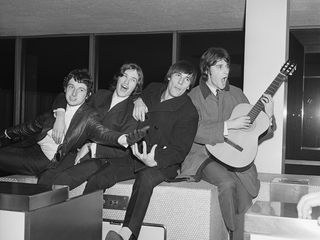
Tired Of Waiting For You, featuring Gary Lightbody
Snow Patrol’s frontman brings a luscious Celtic lilt to one of The Kinks’ most reserved hits, the plaintive melody delivered via banks of acoustic guitars and sustained organs.
Whereas the original sounded sparse and perhaps incomplete, this version is full of rich multi-layered sounds, in keeping with the music Lightbody produces at his day job.

All Day And All Of The Night/Destroyer, featuring Billy Corgan
Davies’ own version of the latter, from The Kinks’ 1981 album Give The People What They Want, played fast and loose with the band’s catalogue, basing itself on the riff of the former and name-checking Lola in its lyrics.
Here, Davies all but raps the words of Destroyer, while the Smashing Pumpkins leader interjects with snippets of the more familiar 1964 hit on top of banks of pianos and crunchy guitars. It’s the only track here representative of The Kinks’ axe-fuelled '80s American success, but neatly alluding to their poppier past.
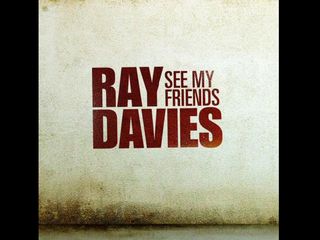
Verdict
While it would be a stretch to claim that anything on See My Friends is likely to replace the originals in the hearts of long-term Kinks fans, the album as a whole is an interesting exercise in tinkering with true classics to suit a range of disparate voices.
The fact that Davies is hands-on at all times gives the project kudos and worth, evidence of a man less inclined to rest on his laurels than he is to fashion former glories for a 21st century audience.
Special mention must go to The 88 who, while uncredited on several tracks, really earn their spurs when backing Lucinda Williams and Alex Chilton. Davies himself appears to relish the diversity of his guests, while never veering too far from the template that made the songs so special in the first place.
See My Friends is released via Universal Records on 1 November.
Liked this? Then read All the old dudes: veteran rockers on film
Connect with MusicRadar: via Twitter, Facebook and YouTube
Get MusicRadar straight to your inbox: Sign up for the free weekly newsletter

"Reggae is more freeform than the blues. But more important, reggae is for everyone": Bob Marley and the Wailers' Catch a Fire, track-by-track

“Part of a beautiful American tradition”: A music theory expert explains the country roots of Beyoncé’s Texas Hold ‘Em, and why it also owes a debt to the blues

"Reggae is more freeform than the blues. But more important, reggae is for everyone": Bob Marley and the Wailers' Catch a Fire, track-by-track

“Part of a beautiful American tradition”: A music theory expert explains the country roots of Beyoncé’s Texas Hold ‘Em, and why it also owes a debt to the blues
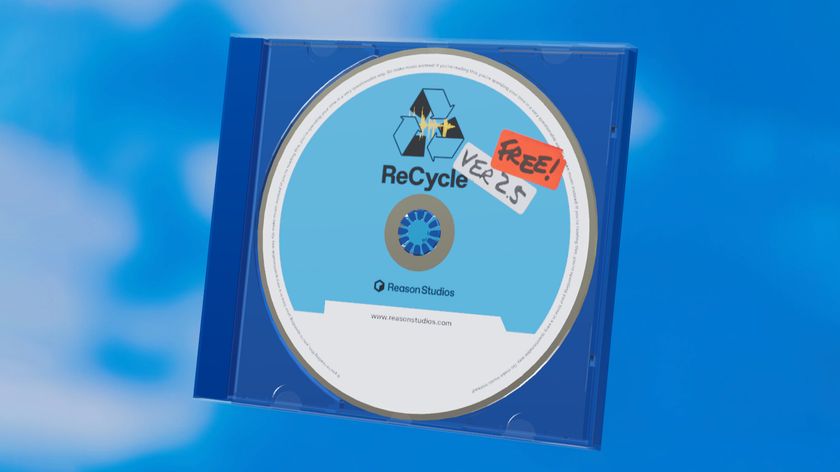
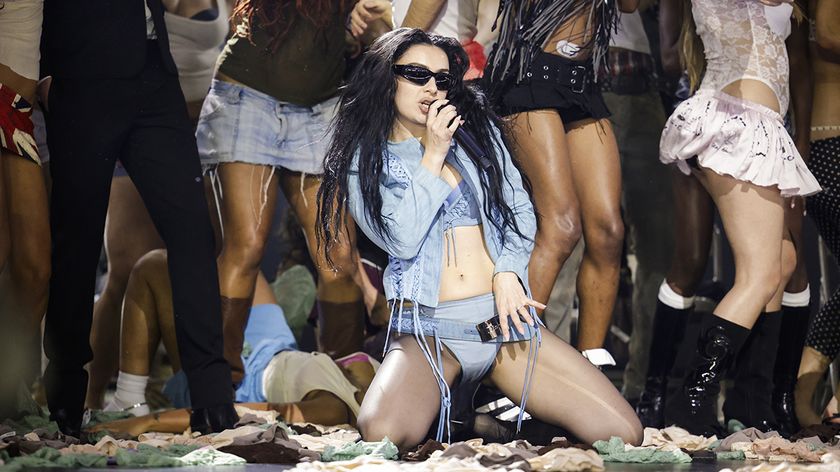
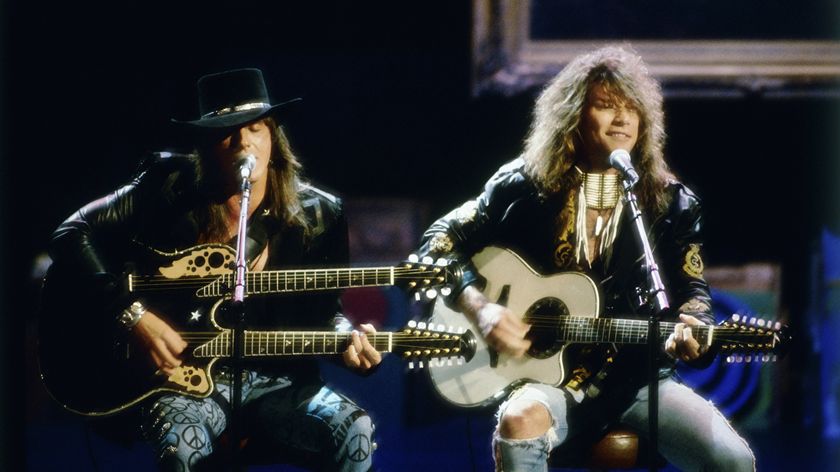
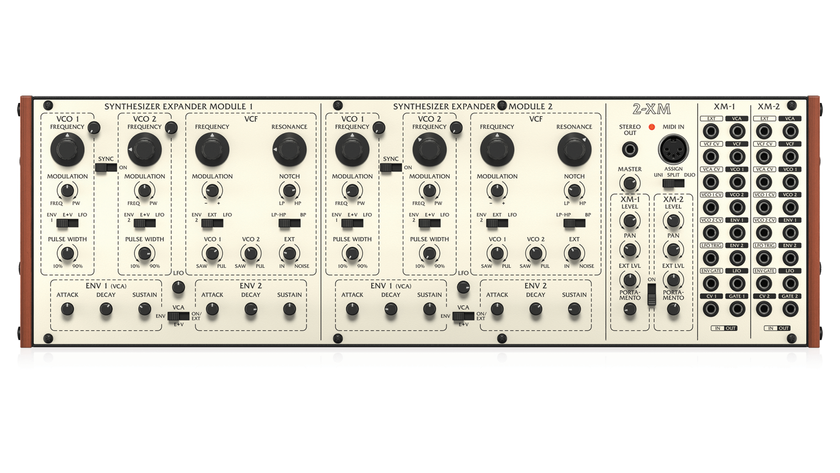
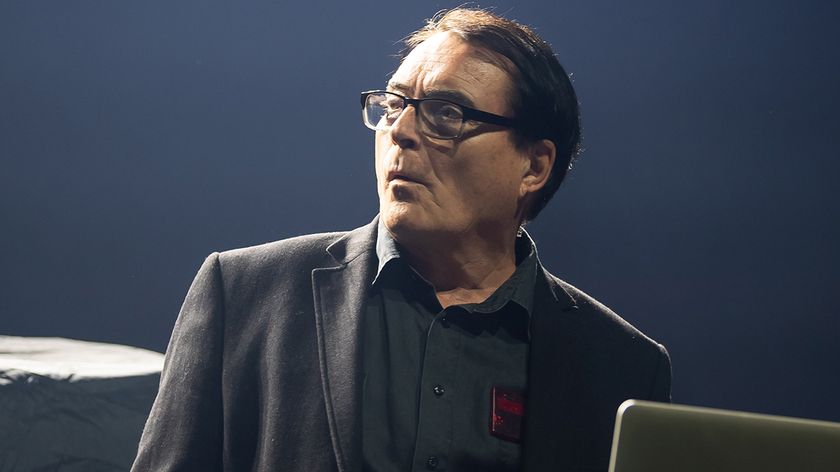
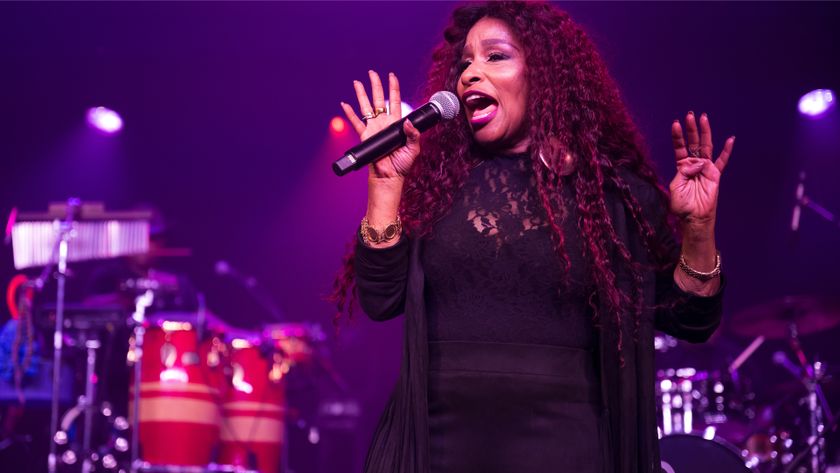
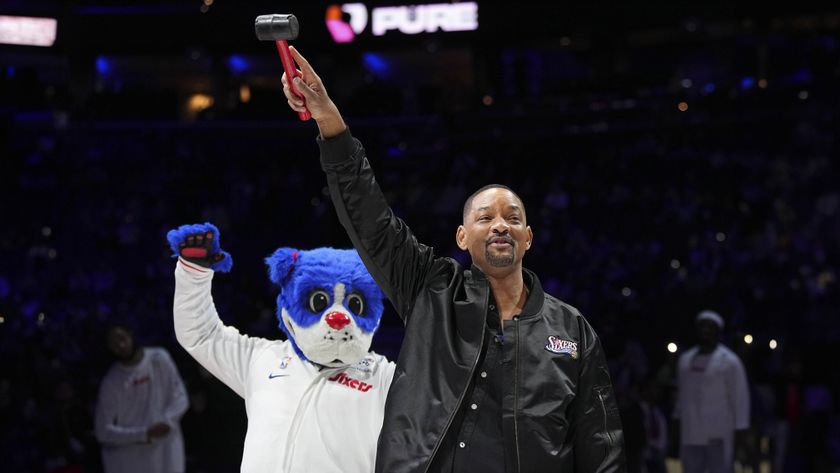


![Chris Hayes [left] wears a purple checked shirt and plays his 1957 Stratocaster in the studio; Michael J. Fox tears it up onstage as Marty McFly in the 1985 blockbuster Back To The Future.](https://cdn.mos.cms.futurecdn.net/nWZUSbFAwA6EqQdruLmXXh-840-80.jpg)